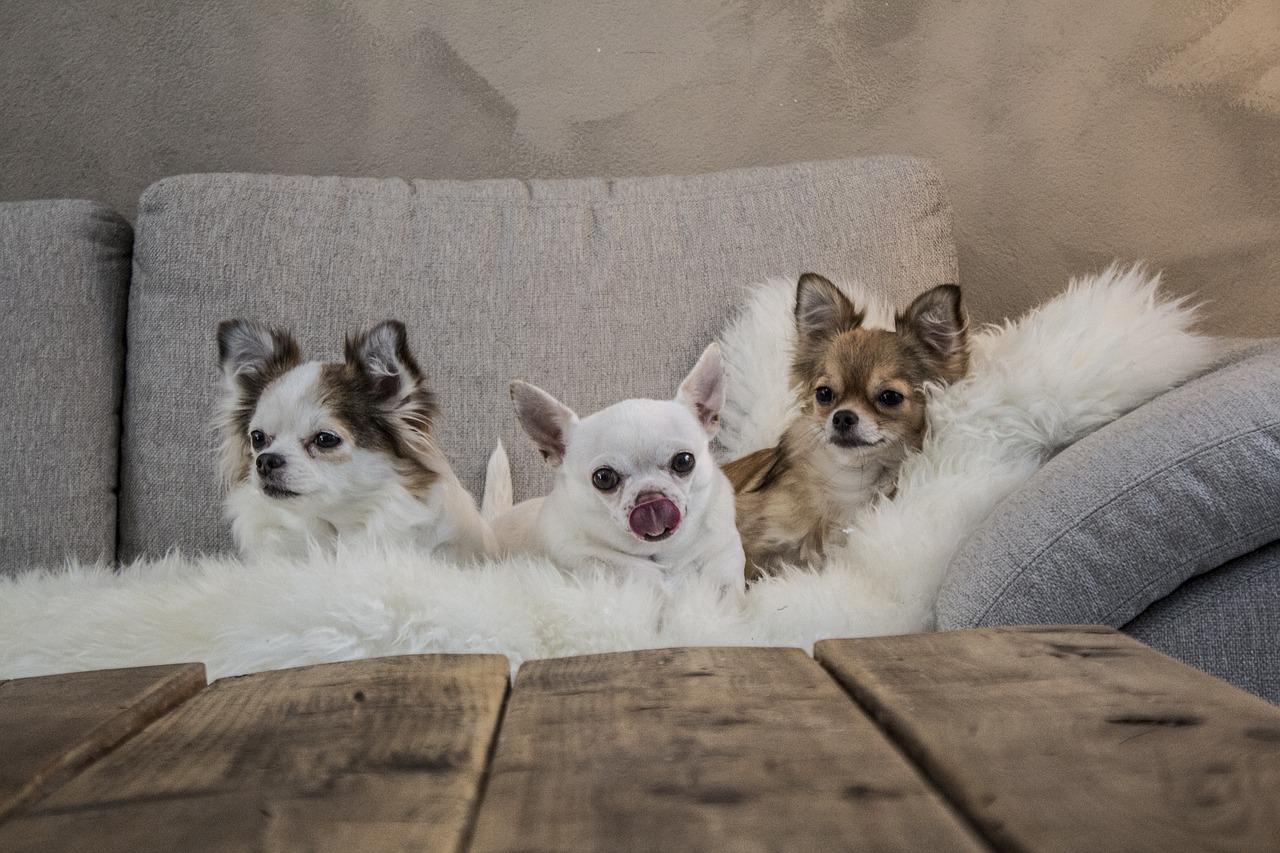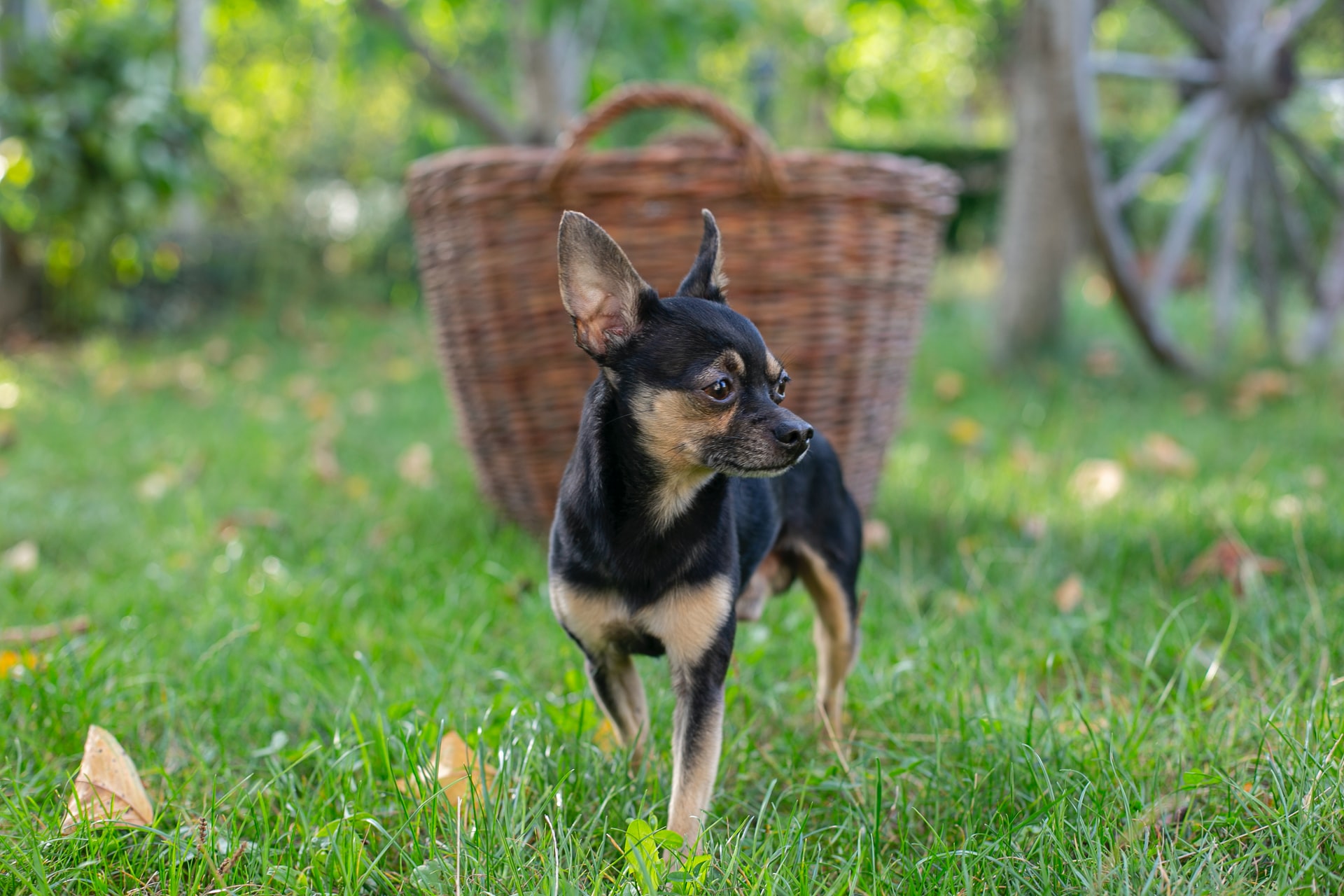One of the most frequent reasons pet owners seek medical treatment for their canine friends is diarrhea. Chihuahua diarrhea may be caused by anything as simple as changing diet or treats. Still, it can also be an indication of a severe underlying illness. If your Chihuahua has diarrhea, it is essential to know what the possible causes are so that you can get him the treatment he needs.
There are many potential causes of diarrhea in Chihuahuas, and some of them may be serious. A dietary change is one of the most common reasons for this condition, but there are also other causes that you may not know.
What Causes Chihuahua Diarrhea?
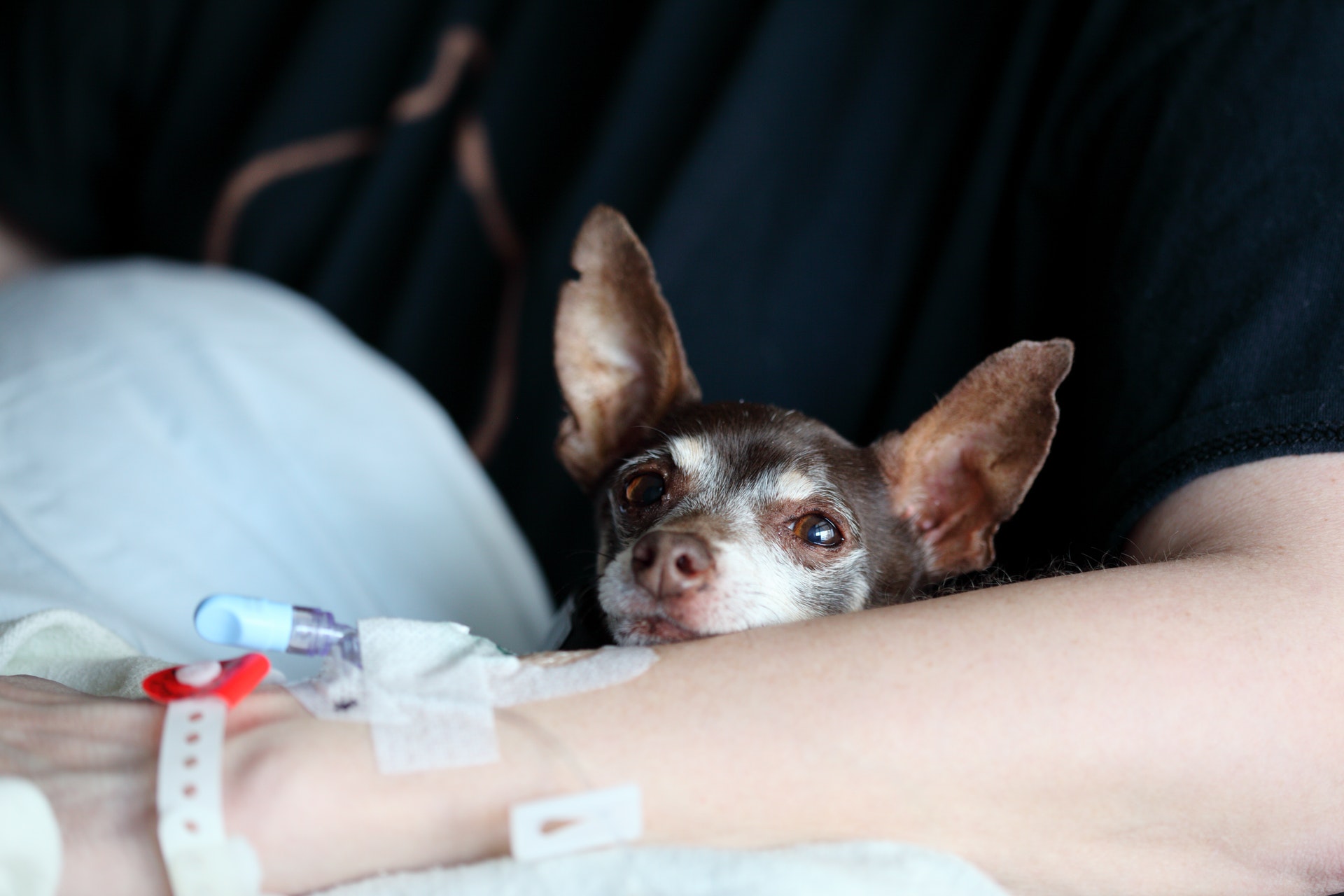
When trying to determine the cause of your Chihuahua’s diarrhea, it is vital to consider any changes that have taken place recently. It includes changes in diet, environment, stress level, and anything else that may be different from your dog’s usual routine. Here are some of the most common causes of diarrhea in Chihuahuas:
💩Ate a foreign object
Curiosity in a Chihuahua may lead to the ingestion of certain unusual items. However, many foreign things may get trapped in your dog’s stomach or lower intestines, posing a danger to his life. Foreign body blockage is often linked to diarrhea. Other symptoms to watch for include vomiting, pain or stomach soreness, constipation, lethargy, a loss of appetite, and aggressive behavior when touched.
While this is a critical situation, your vet will be able to assess whether this is the case rapidly. Learn more about the dangers of ingesting foreign bodies in pets.
💩Toxic substance consumed
One of the Chihuahua’s diarrhea causes may be due to consuming something toxic or poisonous. Toxic objects may include plants such as honeysuckle, holly, mistletoe, bluebells, ivy, and daffodils. Wild mushrooms, chocolate, grapes, raisins, and macadamia nuts may also threaten your pup. If you think your Chihuahua has consumed any of these substances, seek emergency medical care.
💩They ate expired or spoiled food.
It is referred described by some vets as “trash gut.” When a dog scavenges through garbage or eats something that has been sitting out for too long, he’s at risk of developing stomach upset and diarrhea.
It suggests your dog ate something that disturbed his stomach (perhaps from the garbage can or table leftovers). While most occurrences of trash gut are minor, your Chihuahua can develop pancreatitis, which is more dangerous and need veterinarian attention.
💩Sudden change in diet
Even one that is high quality, a new food may cause an upset stomach and diarrhea in your Chihuahua. If you’ve recently introduced a new food to your dog’s diet, this may cause his diarrhea. Stop feeding your dog the new food and offer him a bland diet of boiled chicken and rice until his stomach has settled. Once his diarrhea has resolved, slowly reintroduce his regular food.
If you’re switching your Chihuahua’s diet, the general guideline is to do it gradually. For one week, gradually increase your dog’s new food while gradually decreasing the existing food. Consider the shape of your Chihuahua’s food dish like a pie with equal portions. Replace one “slice” of the existing kibble with fresh kibble every day.
💩Viral disease or bacterial infection
Bacteria present in raw or badly prepared foods, meat left out for a long time, or rotting vegetables might be the source of your Chihuahua’s diarrhea. According to studies, Chihuahuas may get a bacterial illness if you house them with another dog that has it. Diarrhea may happen every two to four weeks and last for months or even years. Look for sparkling mucus on the top of your Chihuahua’s feces and new blood.
Viral diseases like distemper and parvo can also cause bloody diarrhea in your Chihuahua. If you think your dog has either of these diseases, immediately take him to the vet.
💩Irritable Bowel Disease (IBD)
IBD occurs when inflammatory cells infiltrate your Chihuahua’s colon regularly. The reason behind this is unclear. When the colon is affected, diarrhea is the most prevalent symptom of IBD. Weight loss is another symptom of IBD. Your veterinarian can evaluate the problem and provide a treatment plan to restore your dog’s health.
💩Medication side effects
Diarrhea is a common side effect of many medications, including antibiotics, steroids, and non-steroidal anti-inflammatory drugs (NSAIDs). If your Chihuahua is taking new medication and has developed diarrhea, talk to your vet about the possibility of changing his medication.
💩Intestinal parasites
Animal excrement and water sources outdoors (stagnant water, ponds, puddles) are typical places to find intestinal parasites. Your Chihuahua may drink polluted water or eats excrement. That’s why parasitic cysts released in the stool may have been digested, allowing parasites to dwell in his gut. It might result in frothy, oily diarrhea with mucus and a powerful odor. Your veterinarian will treat your Chihuahua to get rid of the parasite.
💩Stressful situations
Just like humans, dogs can get diarrhea from stress. The changing environment, moving to a new home, adding a new pet or baby to the family, or even boarding at a kennel can lead to diarrhea.
If your Chihuahua is experiencing stress, try to make his environment as calm and relaxed as possible. If diarrhea persists, talk to your veterinarian about giving your dog a probiotic supplement or anti-anxiety medication.
💩Liver or kidney disease
Diarrhea can be a symptom of more serious underlying health problems like liver or kidney disease. If your Chihuahua has other symptoms like vomiting, loss of appetite, lethargy, or increased thirst, make an appointment with your veterinarian to have him checked out.
Types of Diarrhea Common in Chihuahuas

When trying to filter down the causes of Chihuahua diarrhea, we divide it into small-bowel diarrhea and large-bowel diarrhea.
🩹Small-bowel diarrhea
With small-bowel diarrhea, there is an increase in the motility or movement of the intestine. It causes a decrease in the time that food spends in the small intestine, which leads to the malabsorption of nutrients. Small-bowel diarrhea results in watery, soft stools with a mucus film.
It is characterized by:
- The stool is often greasy and foamy.
- Usually, there isn’t much straining associated.
- The presence of red blood or mucus in the feces is rare.
- Large, goopy feces are excreted regularly.
The small intestine is responsible for nutrition absorption. There might be a lack of absorption when inflammation or malfunction, leading to fatty feces.
In Chihuahuas with small-bowel diarrhea, we may also notice indicators of malnutrition:
- Weight loss
- A ferocious appetite
- The hair coat is in bad shape.
🩹Large-bowel diarrhea
On the other hand, large-bowel diarrhea is the result of an increase in motility of the large intestine. The main difference between large and small bowel diarrhea is that large bowel diarrhea has more water content in the feces. The intestine doesn’t have enough time to absorb all the water from what’s ingested.
With large-bowel diarrhea, you’ll see:
- Watery, soft stool
- The presence of mucus or blood in the feces is common.
- Frequent defecation (more than three times a day)
- Struggling during defecation
When their Chihuahua’s feces contains blood, pet owners are often alarmed. While this indicates inflammation and is an excellent reason to see the veterinarian, a tiny quantity of blood is typical while dealing with large-bowel diarrhea.
Suppose there is a significant amount of blood in the feces (the stool is completely blood or appears like raspberry jam). In that case, this is a cause for worry that need immediate attention as soon as possible.
🩹Acute diarrhea
Acute diarrhea comes on suddenly and lasts for less than two weeks. It is usually the result of a dietary indiscretion, such as eating something that doesn’t agree with your Chihuahua’s stomach.
Acute diarrhea often clears up and doesn’t require any treatment other than some at-home care. Be sure to keep your Chihuahua hydrated by offering him fresh water and feeding him a bland diet until his diarrhea clears up.
It’s time to take your Chihuahua to the veterinarian if diarrhea has continued for more than 48 hours, you observe blood in the poo, or your pet has other symptoms (inappetence or vomiting).
🩹Chronic diarrhea
On the other hand, chronic diarrhea lasts for more than three weeks. It is often the result of an underlying health condition and will require treatment from your veterinarian.
It is usually caused by:
- IBD or Inflammatory bowel disease
- Parasites such as whipworms
- Exocrine pancreatic insufficiency
- Metabolic condition or hyperthyroidism
- Dysbiosis
- Cancer
Dry and untidy hair coat, weight loss, and lethargy are all symptoms of chronic diarrhea in Chihuahuas. Chronic intermittent diarrhea may also occur if your pet is constantly exposed to a food they are allergic to.
Some Chihuahua meals advertised as healthy for your pet are rich in protein and fat. Grain-free diets reduce the amount of essential fiber in dog food, which may be hard for a sensitive system.
It’s important to seek balance in a diet and make sure it’s from a reputable brand that does their study when it comes to formulas.
Home Remedies For Your Chihuahua’s Diarrhea

There are instances when your Chihuahua is acting strangely, and you can treat their diarrhea without seeking medical help. If you’ve decided that trying to “ride out” your Chihuahua’s diarrhea for 24 to 36 hours is a good idea, here are some options to consider.
🥣Give them enough rest.
When a Chihuahua has diarrhea, its body tries to expel something that doesn’t agree with them. To do this, they use a lot of energy. So, your Chihuahua must get plenty of rest. Offer them a soft bed in a quiet room where they can relax and let their body do their work.
🥣Let them fast
Fasting is often ideal when a Chihuahua has diarrhea. You’ll need to withhold food for 12 to 24 hours. During this time, your Chihuahua’s digestive system will have a chance to rest and recover. No regular meals, treats, or other snacks.
After the fasting period, start by offering your Chihuahua small meals on a bland diet. Boiled chicken and rice are a good option. Avoid salty, sugary, or fatty foods as these can make diarrhea worse.
🥣Make sure they’re hydrated.
Dehydration is a common complication of diarrhea, so it’s essential to make sure your Chihuahua stays hydrated. Offer them small amounts of water frequently throughout the day. You can also offer them ice chips or beef/chicken broth if they’re not interested in water.
🥣Feed them a bland diet
A bland diet of boiled chicken and rice is often ideal for Chihuahuas with diarrhea. This diet is easy on their stomach and will help firm up their stool. Start by offering small amounts of food and gradually increasing the amount as their diarrhea improves.
You may give your tiny Chihuahua a spoonful or two of food per hour or two hours. Allow for a couple of hours of relaxation after that. You may slowly increase the quantity if there are no vomiting or increasing symptoms. You’ll find yourself giving them smaller servings more often than normal.
🥣Add probiotics to their diet.
Probiotics are beneficial bacteria that can help restore the balance of good and bad bacteria in your Chihuahua’s gut. It can help to reduce diarrhea and other digestive issues. Probiotics are available in powder form to add to your Chihuahua’s food. You can also find them in chewable tablets or treats.
🥣Feed them fiber
Give your Chihuahua some pumpkin puree. Pumpkin is a high-fiber food that may instantly soothe an upset stomach in your Chihuahua. It functions as a prebiotic because it promotes the development of beneficial bacteria by decreasing pH and giving nutrients.
It also aids in the inhibition of dangerous microorganisms in the intestines. When feeding your Chihuahua fiber supplements, make sure they have enough fresh water. Commencing a fiber supplement a few days before the stressful event may help prevent diarrhea from starting.
We take approximately half of a pumpkin can when we open it and freeze it in ice cube trays. You’ll always have pumpkins on hand, and they’re also fantastic for daily snacks!
There is an organic air-dried pumpkin that you can buy. It is wonderful to have on hand all year. Simply add water to make a lovely pumpkin puree. We create frozen treats with it, and the Chihuahuas adore them!
🥣Give them over-the-counter medication.
If your Chihuahua’s diarrhea is mild, you may be able to treat it at home with over-the-counter medication. Look for products containing kaolin or pectin, as these can help firm up stool. You can also use medications that contain loperamide (Imodium) to reduce the frequency of bowel movements.
When Should You Worry About Diarrhea in Your Chihuahua?
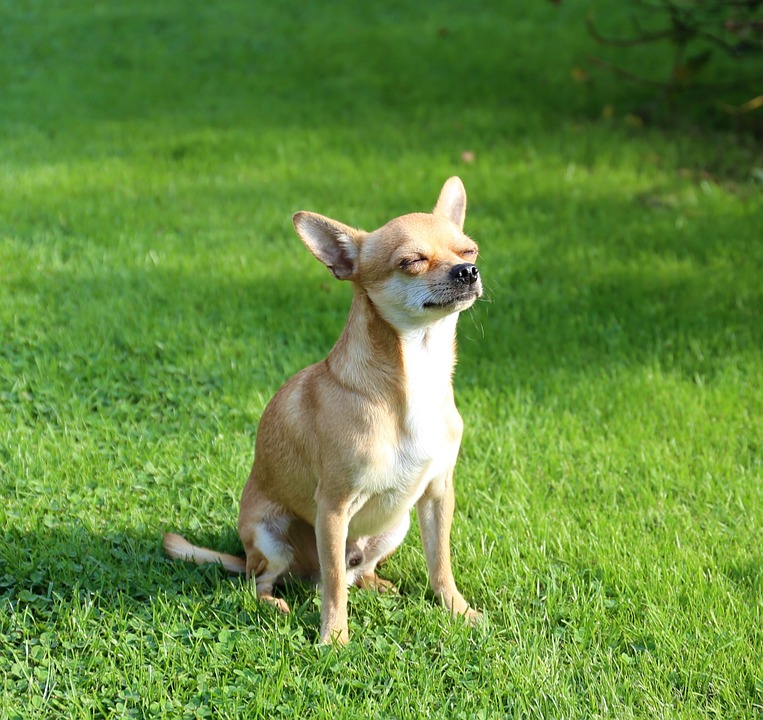
First and foremost, you are the expert on your Chihuahua. If you have any concerns, please contact your veterinarian. That is why your veterinarian is there: to counsel you. Be aware that certain elements of diarrhea are more serious and have some possible repercussions.
Suppose your Chihuahua has one soft poo but is still cheerful, playing, and eating properly. In that case, you can likely wait to see what the next stool looks like before taking any drastic measures.
Here are some surefire signs that it is time to seek professional help for your Chihuahua’s diarrhea:
More than three loose stools in 24 hours: If your Chihuahua has three or more watery, soft, or runny stools within 24 hours, this is considered diarrhea. If it lasts longer than two days, please seek professional help.
Black, tarry stools: This can be a sign of internal bleeding and should be addressed immediately by your veterinarian.
Blood in their stool: This is an emergency. You should contact your veterinarian or local animal hospital right away.
Not drinking enough water: Dehydration is a very real concern with diarrhea. If you are concerned that your Chihuahua is not drinking enough water, please seek professional help.
Vomiting: If your Chihuahua is also vomiting, this can signify a more severe illness.
Lethargy: A decrease in energy or activity level.
Fever: A fever above 103 degrees Fahrenheit (39.4 degrees Celsius).
When to Call The Vet?
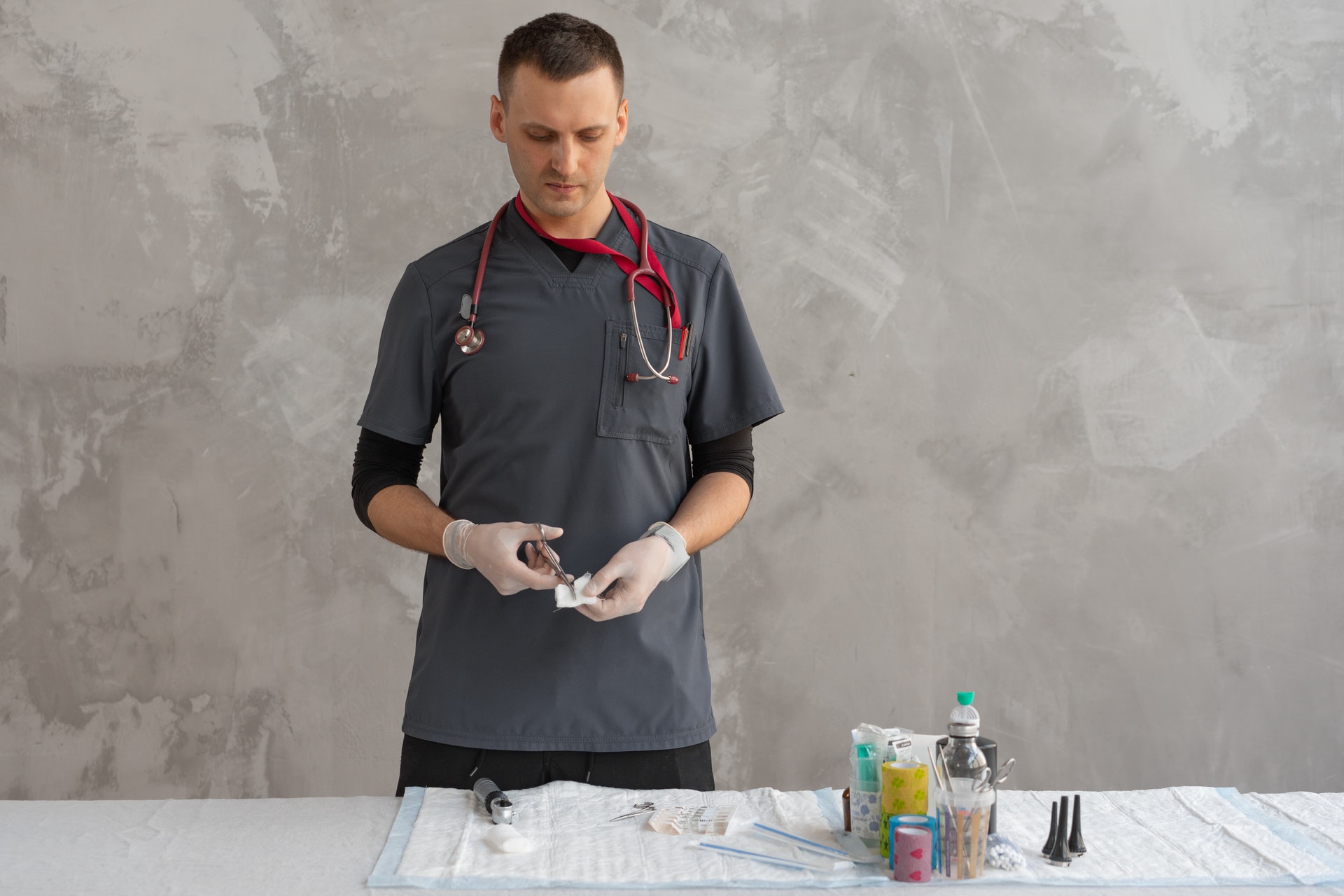
Suppose your Chihuahua struggles to pass a stool but only releases little volumes of watery diarrhea. In that case, an uncomfortable blockage caused by the ingestion of a foreign item such as a toy might be the cause. It is a critical problem that requires immediate veterinarian intervention! Contact your veterinarian or go to the closest emergency vet clinic for immediate assistance.
Repeated episodes of diarrhea over a short period might indicate a significant health problem. It is especially true if your dog is extremely old, very young, or has an impaired immune system. Parvovirus infections are exceedingly dangerous, infectious, and life-threatening. If your dog has diarrhea regularly, see your veterinarian immediately away.
Like the ones listed above, other symptoms should be evaluated by a veterinarian as soon as possible and diarrhea. When it comes to your closest friend’s health, it’s always better to be safe than sorry. By bringing your dog in for a checkup, your veterinarian will be able to establish the root of your dog’s diarrhea and offer adequate treatment.
Contact your veterinarian if your dog exhibits any symptoms that give you worry. If your pet’s symptoms suggest that an examination is required, your veterinarian will let you know.
Frequently Asked Questions
Q: How long does watery diarrhea last in Chihuahua?
A: The length of time that watery diarrhea lasts in dogs can vary depending on the underlying cause. If your dog has watery diarrhea and you are unsure of the cause, it is best to consult your veterinarian. Diarrhea in puppies typically passes in five to seven days and seldom lasts more than two weeks. Diarrhea in adult Chihuahuas usually clears itself in two to four days. However, some infections might continue for a week or more.
Diarrhea can be acute (sudden onset) or chronic (long-term). Acute watery diarrhea typically lasts less than two weeks, while chronic watery diarrhea may last for months.
Q: Does banana firm up Chihuahua stool?
A: Yes, a banana can firm up a Chihuahua’s stool. Banana is high in soluble fiber, absorbing water and adding bulk to stools, making them firmer. Soluble fiber is also fermented by gut bacteria, producing short-chain fatty acids that have a laxative effect and can help to soften stools. So if your Chihuahua has loose stools, you may want to try feeding them some bananas to see if it helps firm them up.
Q: What soothes a Chihuahua’s stomach and helps with diarrhea?
A: A few things can help soothe a Chihuahua’s stomach and help with diarrhea. One is to feed them boiled white rice, as the starch will help to absorb any excess liquid in their digestive system.
Probiotics, natural yogurt, specially made Chihuahua diet, egg without oil, cottage cheese, peeled boiled potatoes, and medicines recommended by your veterinarian are all possible remedies for your dog’s upset stomach.
Q: Is Pepto Bismol safe for Chihuahuas?
A: There isn’t a one-size-fits-all answer to this question, as the safety of giving Pepto Bismol to a Chihuahua may vary depending on the individual dog’s health and age. However, as with any medication, it’s always best to check with your veterinarian before administering Pepto Bismol or any other over-the-counter drug to your Chihuahua.
Ideally, one teaspoon for every 10 pounds is the suggested dose for Chihuahuas. You may give it to your dog every six to eight hours. However, if your dog still has diarrhea after a few doses, quit providing it to him and contact your vet.
Final Thoughts
Chihuahuas are small dogs, and as such, they are susceptible to a variety of health problems. Diarrhea is one of the most common issues faced by these dogs.
There are many potential causes of diarrhea in Chihuahuas. It can be a symptom of a more serious underlying health problem. If your Chihuahua has diarrhea, it is essential to contact your veterinarian to diagnose and treat the cause appropriately.
Here at ILoveChihuahua, we share our personal experiences as owners of this feisty breed. We talk about recommended methods, dog supplies picks, and advice on common Chihuahua problems. Our goal is to promote responsible dog ownership, so there would be fewer Chihuahuas in shelters.

